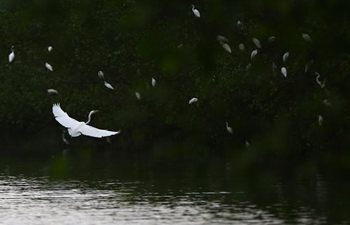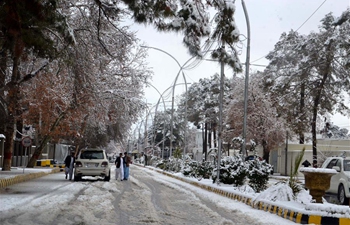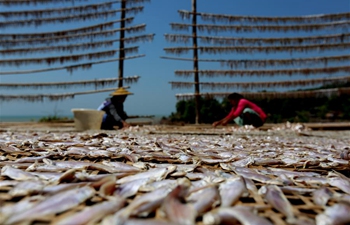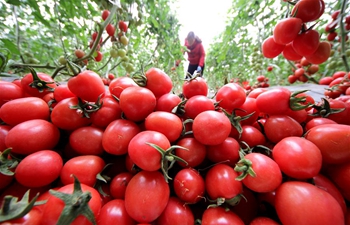SYDNEY, March 5 (Xinhua) -- Australia's vast network of animal havens has prevented the extinction of 13 mammal species, new research released on Tuesday has found.
But to understand more about how Australia's islands, sanctuaries and conservation parks help protect native fauna from invasive species, the Threatened Species Recovery Hub, made up of 10 leading Australian universities and the Australian Wildlife Conservancy, conducted a major audit into the network.
"Predation by feral cats and foxes is the main reason that Australia has the worst mammal extinction record over the last 250 years," study lead Professor Sarah Legge from the University of Queensland explained.
"At least 80 Australian islands are naturally cat and fox-free havens which prevented extinctions."
"For example, the greater stick-nest rat became extinct on mainland Australia, but survived on the Franklin Islands off South Australia, which were not reached by foxes or cats."
With pressure on Australian authorities to better protect its native animals, a number of additional animal havens have been created on mainland Australia with large fenced areas to keep feral pests out of reach.
According to the findings of the research, there are now 101 island havens covering 2,152 square km and 17 fenced havens covering 346 square km.
"Understanding where safe havens are needed and identifying species that require protection will be vital for avoiding future extinctions," Australia's Threatened Species Commissioner Dr Sally Box said.
"This science is building a clearer picture of where best to create safe havens that deliver exceptional conservation benefits and protect a wide range of species."
While Australian conservationists are still searching for more effective ways to manage invasive species, Legge believes the efforts made by government agencies, NGOs and universities will remain vital for many Aussie animals.
"Longer term, we are still seeking ways of reducing fox and cat impacts across the landscape so that native mammals can be restored at bigger scales," she said.
"Until then, cat and fox-free havens will continue to be a critical tool in preventing extinctions."













